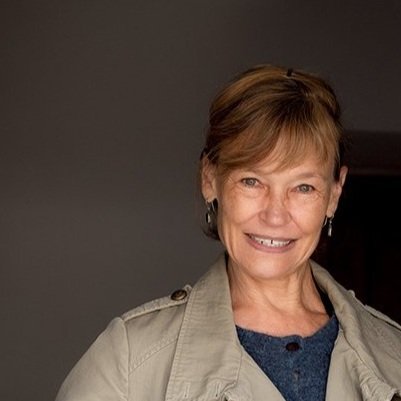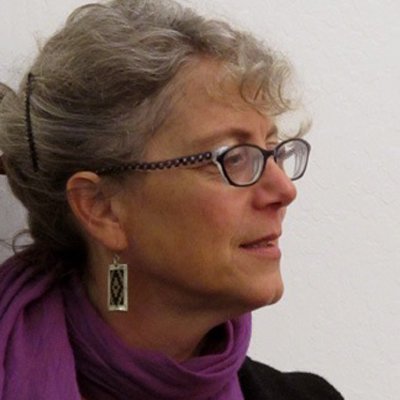Forest
Francisco Segovia:
Artificer and Visionary
Francisco Segovia was born in Mexico City in 1958 and has worked as a lexicographer, literature professor, and independent translator (his published translations include works by William Wordsworth, Charles Perrault, and Dante). He has been a founding member and on the editorial boards of some of Mexico’s most important literary magazines, and is a member of the team researching and writing the Diccionario del Español de México, at the Center for Linguistic and Literary Studies at El Colegio de México. He has published more than twenty books of poetry, one of which, Partidas, 2011, was hailed as “one of the most important books to have been written in Mexico” (Pedro Serrano, 2011) and “perhaps the most daring book by one of the greatest poets of contemporary Mexican literature” (Francisco Meza, 2012), and “a book that occupies an extraordinary place in Mexican poetry… a milestone.” (José María Espinasa, 2012).
Francisco Segovia is one of the most transformative and rigorous poets writing in Mexico today. His poetry is both self-confident and searching, a paradox that resolves itself within the verses themselves, in their stunning craftsmanship and long, sonorous echoes of both complex meaning and soaring melody. He has an uncanny ability to “hear” language, words — both in Spanish and in Mexico’s original languages — in their syntactic variety and plurality of meaning, sustaining a virtuosity of images that synthesize into moments of illumination. All of this is accompanied by his impulse to create — not simply recount — a story, a tale, to lead the reader through a sequence of moments, almost cinematic scenarios, that suddenly freeze; out of this luminescent immobility, a shudder of unity, of reality, emerges, enduring until the next scenario arises, thereby tracing the lines of continuity in his poetry.
Segovia’s poetry slides along the knife’s edge of the sayable, carrying meaning — often complex, even metaphysical — to the very edge of meaningfulness, where it pools, saturated and dripping with extraordinary clarity and vision. This depth of meaning is achieved in part by the intensity of Segovia’s attention, the way, through language, he connects the world he observes outside himself to his own internal landscape, layering experience, dissolving the illusory skin that sets the individual so tragically apart from all they perceive.
Forest [Bosque], published in 2002 and included in Aire Común (Collected Works 1994–2011), is a comparatively modest effort next to his much lauded masterpiece Partidas (2011), though it shares all the qualities that have made Segovia such a force in Mexican poetry over the last three decades. It, too, tells a story, a love story, between two people, with the forest where their love takes place, and ultimately with all the elements in the material and immaterial world. It is one of his more accessible books, a small epic, if you will, and one that could open a path along which a more sustained sampling of this major poet’s work can find its way into English.
According to David Huerta, “Segovia’s entire oeuvre has become an extraordinary diorama of poetry, of the art of creating poetry, of poems that are more and more profound and beautiful.” Recalling Victor Hugo’s comment about Baudelaire’s Les Fleurs du mal, calling it un frisson nouveau, he speaks directly to Segovia: “You have created un frisson nouveau.” Elsewhere, Huerta states that “Segovia is an immense province on the map of Mexican literature... It is a country that continues to grow all around us, not through imperial expansion but rather like luminescent rhizomes that nobody would have difficulty imagining on world atlases of art and literature.”
—Katherine Silver
Seven poems from Forest [Bosque], translated from the Spanish by Katherine Silver
EVENING STAR
1
This evening once again Venus places
in the vast neutrality of the sky
her drop of unfeigned brightness…
Who—if not even the air—
would cheat her out of her powerful truth
as a not-created thing, bereft of the atmosphere
of time?
Once again she displays her emphatic clarity,
her pure smoldering so gloriously above,
without air or clouds of smoke.
2
Maybe that star watches us creatures
here below, stirring up the air
and blurring her density, lifting
—above even love and death—
that immense wave we do not see
gathering slowly on high
nor will we see breaking
emphatically upon her shore.
3
It is our toing-and-froing, our own giddiness
we see flickering in the stars.
Because we see from the air
—cool and cloudy and sometimes quiet—
how the terrible smoldering of things and beings
who do not live in the air
is gently poured toward us.
Though above, or beyond, above and beyond,
there smolders without being consumed her stolid fathom
of unspilled blue water…
4
All of the entire evening awaits
the punctual splendor of its star.
And learns from her to shine
without setting fire to the things of the day
or putting an end to its frenzy. It surrenders to the twilight
without even warming the air that it breathes,
and finally it smolders without flames.
5
The day never had—in the splendor of its dazzling
frenzy—any hope of washing its spent light
in the cistern of a primeval dawn, or of at least
returning for the love of its morning.
But she shines again—as she shone at the beginning,
with the candid clarity of a drop of water:
the double star of love.
Night will be clean, just like the break of day.
Carolie Parker, Aerial Sweep 1, 2019-present. Acrylic, charcoal, watercolor, and wax on paper. Image courtesy of the artist.
PREMONITION
Why did we falter that day facing the forest
as if its silent enormity would give us over
to a world still without world, anonymous and threatening,
without words or children, inhuman?
Why did we falter and—as we entered together—fear
that even our union was dissolving?
Each tree knows—among the thicket of trees—
its own name and where its roots are buried.
It knows this in silence and pronounces this clearly
in its language of pronounced silence…
Didn’t we later see
the fog follow us into the glade
—like an exhalation of the forest—
and little by little occupy the open sky?
We never heard its name,
nor ours, nor that of a child of ours.
Surrendering ourselves to our embrace
—and to our embrace in its embrace—
we felt its deep intoning in our breast.
Carolie Parker, Aerial Sweep 2, 2019-present. Acrylic, charcoal, watercolor, and wax on paper. Image courtesy of the artist.
FOG
The fog draws something toward us
but never gives it to us.
Something we endlessly search for
in vain among other things
—which freely give themselves to us
(or we give to each other)
because we deserve them,
never as a gift.
It draws something toward us
we don’t know what,
though maybe it would give it to us
if we knew how to take it
without deserving it.
NOSTALGIA
The mist settles into the forest and grows dense
like ancient nostalgia, familiar and punctual:
The year is ending and this time it left its scars
on top of other scars…
But the frenzy of flooded land
over parched land—water drowned in ash—has passed
and this afternoon the forest at last returns to its memories
and lets itself sense with confidence
how little by little in its core a wisp of fog
begins to churn, barely darker and denser
than the vapor of his own breathing…
It’s there, in the forest’s deep breaths,
where she still sleeps her heavy sleep
from before the touch and the violence and the waking
to a date and time. From before…
It does not want to wake her from then.
It wants to learn to remember
in the darkness of that unwatched sleep
the childhood of the fog that fills it
and that it never saw as a babe.
Carolie Parker, Aerial Sweep 3, 2019-present. Acrylic, charcoal, watercolor, and wax on paper. Image courtesy of the artist.
CHRYSALIS
and to Luisa
The forest fell asleep
inside its shadows while you slept
—like one who turns inward to find shelter—
and left your breath its vapor,
the measured rhythm of pine
and she-oak cones ripening
and leaves falling…
You were asleep in the soft sleeping
darkness, far from the edges
of paths and glades, where the sun
—which always makes everything rise—could still
discern some branches among the branches.
The day had already released its tenacious iridescence:
things were getting closer and closer
to one another
and weaving their tangles, kneading their clutter,
their heap of found things.
How delicately that nocturnal
field of nacre welcomed you
with its delighted patience!
How serenely drowsy it was!
Then you opened your eyes:
the entire forest awoke to the scandal
of seeing itself suddenly
from inside, like a chrysalis
feels ecstatically
unfurl from its center the two wings
that will sparkle tomorrow in the daylight,
fresh and airy in the air, far from the dampness
and itself.
A STEP
Not only do you take
a step over the forest
but also the ground comes
to meet your foot
and hold it.
And to meet your shadow
and to look at the look in your eyes…:
The forest takes good care of what it treasures.
THERE WHERE YOU SLEEP
There where you sleep
is always a sacred place,
forbidden even
to he who in his own dreams
dreams alone with you…
There where you sleep
everything here watches emerge
the bubbling of its underground river.
There where you sleep
time learns
at what pace it is
time for itself as well
and the air again
strokes its own body with arms full.
There where you sleep
everything returns to its element and knows
it is delightful because it grows warm
and because it dies.
There where you sleep…
And all of it—trees, stones, man…—
surrenders devoutly to the delirium
of touching at least in dreams
—there where you sleep—
not your body: your embodiment.
Carolie Parker, Aerial Sweep 4, 2019-present. Acrylic, charcoal, watercolor, and wax on paper. Image courtesy of the artist.
Carolie Parker is a writer and visual artist who lives in Los Angeles. Her multi-sectional paintings are suggested by the Southern California landscape, a fairly reckless experiment in rearranging the natural world to serve human needs. Anyone who has flown into LA has probably been struck by the vast dimensions of its built environment. Seen from the air, it transforms into abstract patterns that convey unremitting, if not always legible, human design on the natural environment. In the Aerial Sweep series, scumbled surfaces built up on discarded maps and paper are superimposed with grid-like forms suggested by suburban configurations, transportation networks, and industrial installations.
Katherine Silver is a renowned and award-winning literary translator and the author of Echo Under Story. She is the former director of the Banff International Literary Translation Centre. She lives in Northern California and does volunteer interpreting for asylum seekers.


